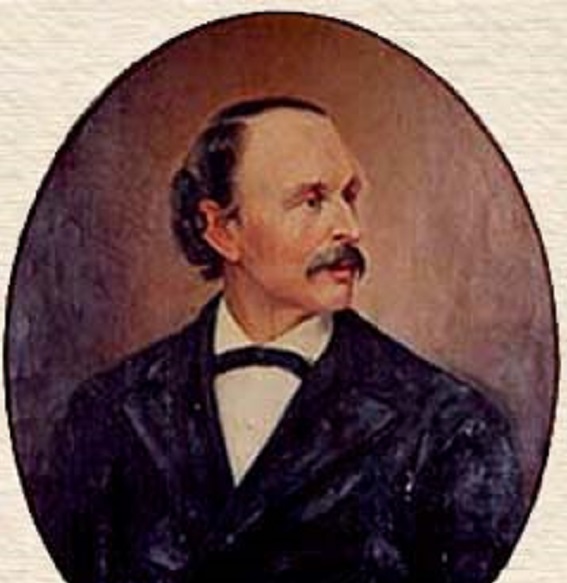“When we talk about the War it is our history we are talking about, it is a part of our identity. To tell libellous lies about our ancestors is a direct attack on who we are.” —from Lies My Teacher Told Me by Clyde N. Wilson
“The Story of Maryland is sad to the last degree.” —Jefferson Davis
In the town of New Roads, located in Pointe Coupée Parish, Louisiana, there is an ancient tree called the Randall Oak, named in honor of James Ryder Randall, who was teaching at Poydras College when the first bloodshed of the War for Southern Independence occurred in his native Baltimore. This event inspired one of the South’s most beloved songs, a song that has been targeted for almost half a century by the expatriate Northerners in the Maryland General Assembly. And up to now they had been unsuccessful in repealing it. But as of May 18, 2021 what had been Maryland’s de jure anthem for eighty years—and de facto anthem for 165 years—has gone the way of “My Old Kentucky Home” and “Carry Me Back to Old Virginny.”[i]
In April of 1861, when Randall, a professor of literature and the classics, heard the news of the death of twelve Baltimore citizens in a clash with Northern troops moving through their city en route to reducing the seceded states, he immediately began to compose a poem—legend says while sitting under the Randall Oak. “Maryland! My Maryland!” was published in the New Orleans Delta and shortly afterwards was set to music, quickly becoming a favourite of Confederate fighting men. The “inordinate” passion of Randall’s lyrics is attributed to his grief over false reports of the death of his friend Francis Xavier Ward at the hands of the Yankee soldiers and to his having lived in Louisiana and thus having been “influenced” by “Southerness.” But Randall was a Southerner by birth and blood. And he was not only expressing his sorrow and anger at the perceived loss of a friend, but also his outrage at Lincoln’s designs on Maryland and her Southern sisters.
Once revered in The Old Line State, Randall was honored by Democrat Governor J. Millard Tawes when he proclaimed the first days of 1961, James Ryder Randall Week. In her December 31, 1960 article on the governor’s proclamation, the Washington Evening Star’s Anne Christmas offers a straightforward and factual account of the history of the song. But now a Maryland governor defames Randall and unschooled reporters express surprise at Maryland’s Southern past.
Ignoring the deluge of calls and emails from people who wanted to save the state song, Larry Hogan signed the legislation banning it, relieved finally to rid Maryland of a “relic of the Confederacy” he said he “never really cared for.” Hogan at one time, however, had very clearly opposed attempts to re-write history.
Even if his veto likely would have been overridden by the legislature, the governor missed an opportunity to have displayed courage and honor. Larry Hogan, however, has aspirations to the White House and a politically expedient reputation as a “Mid-Atlantic” moderate to uphold—he wants Maryland to be New Jersey. Support for an “outdated” and “out of touch” Rebel anthem would not have helped his career plans.
Interjecting himself into the state’s battle over that Rebel anthem is U.S. Congressman Jamie Raskin. Born in Washington, D.C., the son of transplanted Midwestern radicals Marcus and Barbara Bellman Raskin, the Congressman, who represents Maryland’s 8th District, has submitted to the General Assembly, a new version of “Maryland! My Maryland!”—predictably, a more “just” and politically correct retelling of the state’s history.
Though they will still have the state flag to contend with—and they’ll come gunning for that presently—with the Marseillaise of the South out of the way, Raskin and other carpetbaggers will no longer be bothered by this most haunting and beautiful reminder of Maryland’s Southern heritage. And as her statues, artifacts and Southern symbols disappear, it becomes easier for her “educators” to teach falsehoods to school children who learn that the elderly Barbara Fritchie, a Marylander, bravely waved the Union colours out her window and dared Jackson to shoot her old gray head; that Lincoln, a friend to the Old Line State, was a kindly leader who wanted to “make men free” and save the union, begging the question that it had to be saved. But the truth is that Fritchie was a Pennsylvanian living in Frederick, Maryland who never met Stonewall when he was there; the truth is that Lincoln was a tyrant who cared only about Northern business interests. And seven days into his unjust war on the South, his was “the despot’s heel…on [the Maryland] shore,” as the song goes.
[i] The lyrics to “My Old Kentucky Home” were “updated” in 1986. “Carry Me Back to Old Virginny” was retired in 1997.







